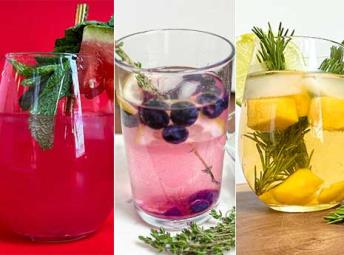
It's time to see and eat green. The USDA recommends a minimum of 3 cups of greens per week, but many aren't even getting that amount. Green fruits and vegetables deliver some of the most vitamins, minerals, and phytochemicals to our bodies. And greens are the most concentrated source of nutrition of any food.
Spinach
Spinach is loaded with vitamins A and K, which helps regulate blood clotting and may prevent some inflammatory diseases. It's also loaded with calcium, magnesium and folate, an essential B vitamin that's crucial for women. Spinach contains at least 13 different flavanoids that function as antioxidants and anti-cancer agents.
More: Green Smoothies: Why You Should Rotate Your Raw, Leafy Greens
Cabbage
Cabbage, which is loaded with vitamin C, is part of the cruciferous vegetable family, which has been shown to reduce the risk of several types of cancer. Other cruciferous vegetables include broccoli, kale, collard greens, and brussel sprouts, which can all lower the risk of prostate and breast cancer. Their cancer fighting properties stem from the high levels of glucosinolates, which our body metabolizes into isothiocyanates, powerful anti-carcinogens.
Avocado
Avocados are high in monounsaturated fat, a healthy fat that can help lower cholesterol. They contain 30 percent more potassium than a single banana, plus vitamin E, K, fiber, and oleic acid, which has been shown to offer protection against the development of breast cancer. Avocados help your body absorb carotenoids from other antioxidant nutrient dense foods, such as colorful fruits and vegetables.
More: 10 Foods to Fuel Athletic Success
Oregano
You may think of only using oregano with Italian food, but did you know that it's a highly effective antibacterial agent? There are certain oils in oregano that are able to inhibit the growth of several types of bacteria, hence why many people take oregano oil to combat a cold or flu. Oregano is a powerful antioxidant that contains more than the vitamin C-filled orange.
Asparagus
Asparagus is high in vitamins A, C and K and is one of the highest food sources of folate, an essential B vitamin that's crucial for heart health and reproduction. Asparagus is also a natural diuretic—its fat and cholesterol free that contains inulin, which promotes healthy digestion.
More: Power Your Run With Veggies
Green Peppers
Green peppers are loaded with vitamin C, a powerful antioxidant that promotes healthy skin and works to heal wounds. They've been shown to help lower cholesterol, while also being one of the best immunity boosting foods. One serving exceeds the daily requirement of vitamin C, while also being a great source of vitamin B6 and manganese.
Kiwi
Kiwi contains more potassium than a banana, while also being an outstanding source of vitamins C and E. The black seeds can also be crushed to make kiwi fruit oil, which is very rich in Alfa-Linoleic Acid, an important omega-3 fatty acid. Kiwis are very high in fiber, which helps improve diabetes because of its ability to control sugar levels.
More: 16 Colorful Foods You Should Add to Your Diet
 Sign up for a nutrition plan.
Sign up for a nutrition plan.
About the Author








Discuss This Article